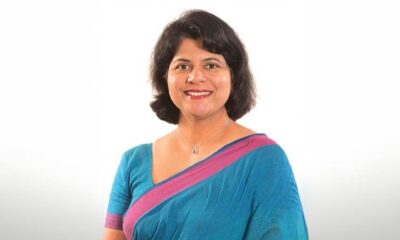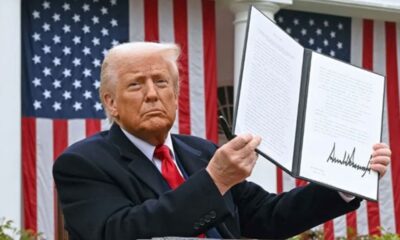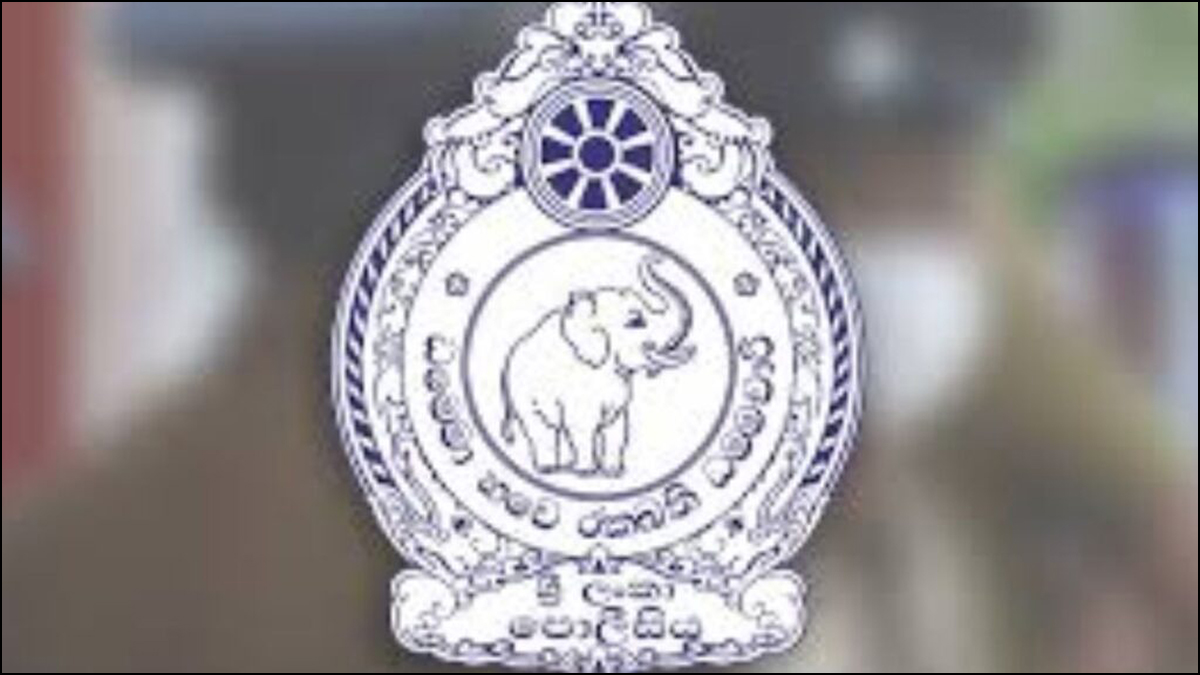FEATURES
Part II – “IMF bailout” and future with Wickramasinghe
Published
3 years agoon
By
editor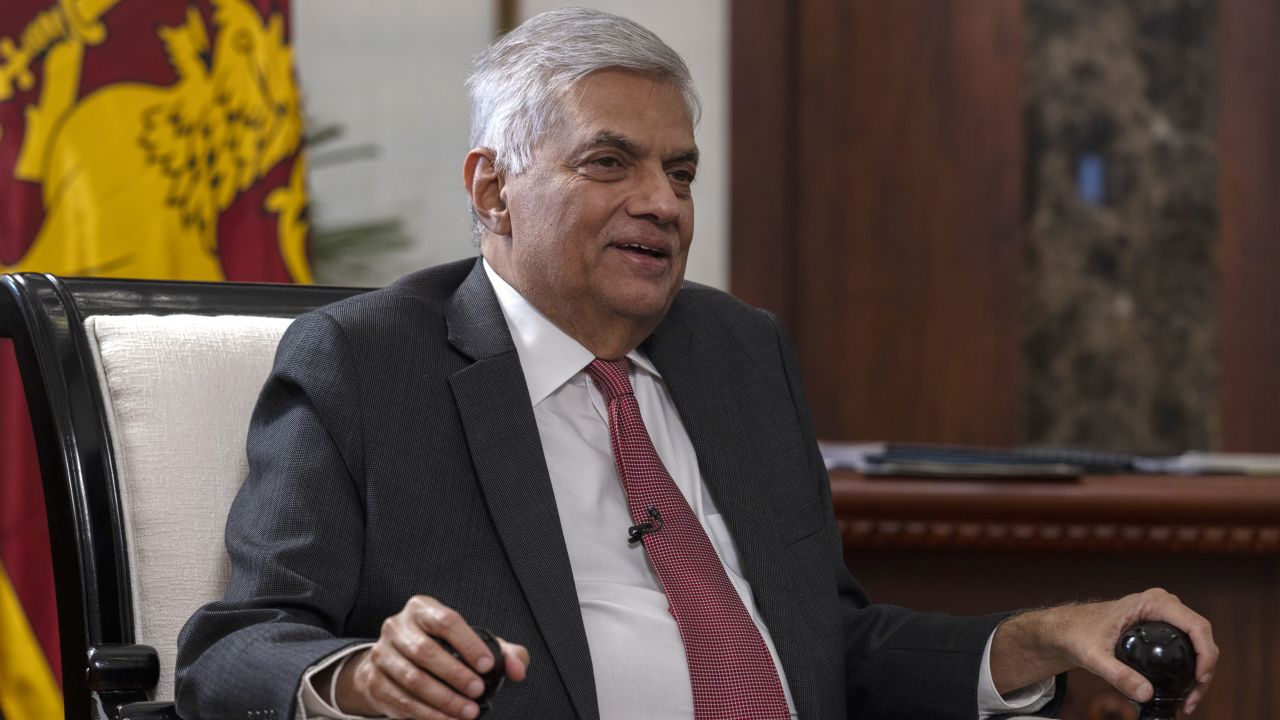
It was officially announced by the IMF on 01 September (2022) the SL government agreed with the IMF Staff on a Staff level Agreement for their 48 month “Extended Fund Facility” (EFF) package of USD 02.9 billion. Their official statement issued, says, “The agreement is subject to the approval by IMF management and the Executive Board in the period ahead, contingent on the implementation by the authorities of prior actions, and on receiving financing assurances from Sri Lanka’s official creditors and making a good faith effort to reach a collaborative agreement with private creditors. Debt relief from Sri Lanka’s creditors and additional financing from multilateral partners will be required to help ensure debt sustainability and close financing gaps.”
It thus means, the promised USD 02.9 billion would be released only after “the implementation by the (Sri Lankan) authorities of prior actions, and on receiving financing assurances from Sri Lanka’s official creditors and making a good faith effort to reach a collaborative agreement with private creditors”.
Interestingly, “prior actions” are not clearly stated in the statement that mentions (i) major tax reforms (ii) cost-recovery based pricing for fuel and electricity (iii) raising social spending and improving social safety net programmes (iv) restoring price stability through data driven monetary policy and stronger Central Bank autonomy (v) rebuilding foreign reserves through restoring a market-determined and flexible exchange rate (vi) safeguarding financial stability (vii) Reducing corruption vulnerabilities through improving fiscal transparency and public financial management, introducing a stronger anti-corruption legal framework, making the total list of key elements in the programme.
These have many contradictions and serious limitations. What would “cost-recovery based pricing” mean to the poor? It would mean increase of fuel prices and electricity charges. Fuel and electricity prices decide prices of every service and consumer product leading to a chain effect of price increases. The 90 percent food inflation prices the WFP calculated for the first half of 2022 would shoot beyond 150 plus at a minimum with this “cost-recovery based pricing”. Thus “restoring price stability” would mean nothing for the poorest 40 percent.
On tax reforms proposed, in Sri Lanka “indirect tax” is 84 per cent of annual inland revenue with VAT contributing a major share. Indirect taxes burden the poor and the vulnerable far more heavily than even the middle-income population. The richest hardly feel a pinch with indirect tax increases. In pre-Covid SL indirect tax paid through food consumption by the poorest 10 percent accounted for over 16 percent of their income while the richest accounted for a negligible 01.8 percent. Any increase of VAT would further increase the burden of the poor.
The key element “raising social spending and improving social safety net programmes” is stillborn with Wickramasinghe’s interim budget passed in parliament on 02 September, the day after the IMF Staff level agreement was announced, axing the school mid-day meal allocation from Rs.06.2 billion to 02 billion, completely halting the mid-day meal programme. This despite 35 percent of households struggling to feed their children one meal a day and malnutrition in the rise. Contrast this with increasing defence allocations that was Rs.177 billion in 2009, the year the civil war was concluded and the 2022 defence estimates of Rs.371 billion that goes untouched. Is this “raising social spending and improving social safety net programmes?”
Of all “key elements” proposed the last on “Reducing corruption vulnerabilities through improving fiscal transparency and public financial management,….”. is the most hilarious when neither party to the EFF assistance would make details public. They yet stand for “improving fiscal transparency and public financial management”.
Governor of the Central Bank (CBSL) Mr.Nandalal Weerasinghe, onetime IMF employee as an Alternate Executive Director representing SA countries, went public saying Sri Lanka had IMF funding 16 times before but agreements have never been made public or presented to parliament. “There is no practise like that” he told the TV anchor and added even debt restructuring cannot be made public as they include sensitive information related to “trade secrets”.
That there was no practise of making IMF agreements public in the past is known. What is not said is, details of IMF agreements kept out of public scrutiny had been adversely effecting SL. That is all the reason to break out of that non-transparent practise of the past. Reason to make all agreements and commitments public before they are officially accepted.
Calling “business deals” as “trade secrets” do not make them decent and clean. All huge unpayable dollar loans heaped on Citizens during the past carried with them “trade secrets” never made public by any means. Professionals and top bureaucrats have always been party to mega corruption with undisclosed information. State owned Lanka Marine Service privatisation in 2002 August and the 2015 April Bond Scam are clear proof. What confidence and trust can People have in bureaucrats handling debt restructuring with “trade secrets” entrenched?
It is therefore pertinent to ask the CBSL Governor, “will the best solution to restructure loans borrowed with no details made public leading to this massive tragedy be in the same way, keeping the public blind on trade secrets?”
It is also important to ask,
1. how does “secret” debt restructuring help pay back dollar loans?
2. will the “publicly unspecified” key elements help generate forex earnings to meet external trade cost without any more borrowings?
3. how will key elements help reduce the yawning income gap in society that keeps growing?
4. what is there in this IMF assistance for the rural poor to improve their lives?
Ground preparations for IMF assistance is already proving this economic revival is aimed at creating a society without basic human rights and with unrestricted labour exploitation. Amending labour laws have begun without any dialogue with trade union representatives. Minister of Labour is violating ILO Co-Convention No.144 by totally ignoring the tripartite forum “National Labour Advisory Council” (NLAC) established in 1994 to (1) promote social dialogue (2) provide government a forum “to seek views, advice and assistance” of worker organisations and employers on social and labour policies, labour legislations and international labour standards (3) promote good relations between stakeholders for the benefit of economic development and improving working conditions.
As media reports indicated, regulations enacted with restrictions on night and overtime work for female workers to ensure workplace safety have been either relaxed or reduced for the benefit of employers. Minister has instructed the Secretary to initiate reforms on labour laws including the Termination Act. Incidentally the Secretary to Ministry of Labour handling such reforms is one who was removed from the post of Commissioner General of Labour (CGL) and sent out of the department in 2020 October by then Minister of Labour on allegations of total bias for employer interests and corruption involved.
Arguments go on the basis Sri Lanka needs to attract more foreign direct investments for export manufacture to earn more dollars and that requires “free labour” for investors to come. There are around 1,700 factories operating with BOI-SL approvals enjoying everything from custom duty waivers to tax holidays, free infrastructure and more as incentives. BOI also has guidelines that allow investors to deny worker rights including organising trade unions in total violation of the Constitution of the country and ILO Conventions 87 and 98 signed and ratified by the SL government. Of all those factories, not more than a dozen and a half have allowed workers to organise trade unions. Of them, only about 05 factories have signed Collective Agreements (CA) with trade unions.
There is no forensic audit done to compare tax revenue forfeited and infrastructure expenses provided as incentives for foreign direct investors (FDI) for 40 years that in fact was public revenue as against what the People gained from FDIs in return. I will not be surprised if what we gained was a complete loss as against incentives provided.
What more are they asking for? Right for bonded labour? Labour law reforms carried out outside the NLAC without trade union representation would create an environment for bonded labour, though not in direct legal terms. It’s a flawed perception that non-unionised labour with packed incentives attract massive FDIs. While BOI creates the ground for non-unionised labour, increasing incentives have not been the issue for major investors to ignore SL.
Reputed major investors need labour in millions for large scale hi-tech manufacture. While China is beyond comparison, SL is nowhere close to countries like Bangladesh and Vietnam too. With adult populations of 104 million and 68 million respectively, they have large factories with workforces far exceeding the total at Katunayake FTZ that in pre-Covid era was only 31,000 employees. This in fact was half the number employed in the single multi-storey building Rana Plaza in Dhaka Bangladesh, that collapsed in August 2013 killing over 1,132 workers.
Sri Lanka therefore attract mostly runaway investors. They come for economic incentives in imports and exports. This was evident with 721 BOI approved companies closing down in 07 years by 2016 at an average of 103 per year. “Of the companies that closed down, all had received BOI concessions such as tax exemptions while 103 had leased BOI land” the investigative exposure confirmed. (https://www.sundaytimes.lk/170903/news/721-boi-companies-closed-down-from-2010-to-2016-257726.html)
All that said about preparing the ground for EFF assistance, the total approach of President Wickramasinghe is to revive the “free market economy” that for 40 years played the “ruthless devastator” of everything decent and progressive in society. As most have accepted, this “historical tragedy” allows Sri Lanka an opportunity to navigate itself towards a decent and an inclusive future. That demands “development” to be defined to begin with.
The shortest explanation would be, “a new path towards a decent, civilised society that treats all as equal, leaves no one behind and improves quality of life within a secured and a diverse environment creating a rich culture of human values”. Free or neo-liberal market economy within the global market during all its 40 plus years, was everything contrary to that.
Globally neo-liberalism is a disaster with Climate Change and Global Warming “wreaking havoc across the world and threatening lives, economies, health and food” according to UNEP’s “Climate Action Note”. In SL, we need no extra proof of what this free-market economy dishes out for the People. During the past decades a new breed of “filthy rich” dealers emerged within the free-market economy. With them social values, ethics and morals were completely deformed and destroyed leaving an extremely selfish “consumer” tirelessly running round to earn what is impossible for the larger majority. We are helpless with all State agencies going corrupt and inefficient leading to heavy trafficking and peddling of drugs, increase of extortions, minor and grave crimes, and also rape and child abuse turning into a daily occurrence. All political parties now depend on the “filthy rich” for funding. With all such barbarism around, the whole society is left at the mercy of unrestricted industrial pollution, illegal deforestations, sand mining, manmade floods and major landslides.
Is this the economic model we are planning once again to revive with IMF assistance? Is this the economic model that is marketed showcasing “massive growth” in China, Vietnam, South Korea, India and in few other countries where the majority are as poor and deprived as the poor in SL?
In China, average per capita GDP in coastal provinces is 113,365 Yuan with provinces like Shanghai enjoying a per capita GDP of 157,279 while in poor Central and Western China their per capita GDP is less than 44,000 Yuan. What is also not spoken of is the rich growing richer despite the pandemic. Forbes recorded world “dollar billionaire” number as 2,755 in 2021, an increase of 493. China now have 698-dollar billionaires, second to USA with 724 and above India with 237 billionaires.
Strength of all economies are spoken of forgetting the majority poor who are deprived of access to facilities and opportunities and a huge disparity in income. “Oxfam briefing paper – 2017” says “Today the world is facing an unprecedented inequality crisis. Over the last 40 years, there has been a vast increase in the gap between the rich and the rest”. That in fact is what the free market economy is about, apart from being an inherently corrupt city based economy. It is also about politically holding the poor and marginalised majority within the free market economy on a racist ideology created for electioneering.
EFF assistance of IMF has nothing that can guarantee, SL of negating these cancerous anti-social growths. Nothing that can reduce social crime, environmental disasters and massive corruption. Publicly unspecified activities in IMF assistance will not support improving social space, social dialogue and strengthening democratic structures, a fundamental necessity for decent social development.
Sri Lanka needs a different route out of this economic tragedy. This package Wickramasinghe is obsessed with would only marginalise more as poor and deprived under an increasingly authoritative and repressive regime. That will not make it easy for Wickramasinghe, heading a government on borrowed parliamentary majority. That may provide more clout for the Opposition call for a parliamentary election in February 2023. His advantage would still be an Opposition with no alternative programme for saner resolution of this crisis,
In short, call for tabling all EFF loan related IMF documents including proposals for restructuring of debts in parliament immediately for serious social discourse is now the responsibility of social activists outside parliament. Call for elections should be thereafter. As often stressed by me, the final demand, in this instance an election, should never be made the first. An election with none offering an alternate programme is not going to make any difference, though with different names and faces.
– Kusal Perera
21 September 2022
(kusalperera.blogspot.com)
You may like
-
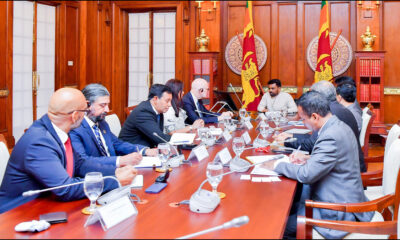

President meets Gates Foundation delegation
-


TUs oppose appointment of Premarathne as new Excise chief
-
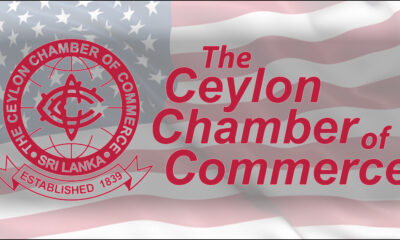

CCC calls for ‘continued engagement’ on US tariff reduction
-


US trade tariffs : GoSL to continue talks
-
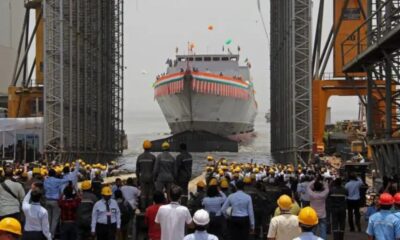

China to drift away from SL with Mazagon Dock’s purchase of CDPLC?
-
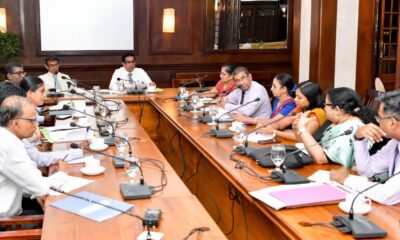

Daycare centres for children with Autism & Neurodevelopmental disorders
FEATURES
Will JVP/NPP leaders respond to this, while dabbling on populist politics?
Published
4 days agoon
July 7, 2025By
editor
Half this year 2025 has also been spent with no answer to how Sri Lanka would begin settling its restructured foreign debts and interests on them, from year 2028 August. When President Wickramasinghe led government began discussing its foreign debt restructuring with the IMF framed within IMF conditions, Sri Lanka had amassed a massive USD 56,092.95 million by end third quarter 2024, the time we were tied to presidential election campaigns.
The last quarter with parliament elections also slotted in, the new President Anura Kumara Dissanayake (AKD), sworn in late September last year, had no time to intervene in the economy. Thus the fourth quarter of the year 2024, the first 03 months of President AKD’s rule closed in December with foreign debt increasing to USD 57,133.49 million. An increase of USD 1,040.54 million in 03 months. Sri Lanka had by then agreed with IMF to restructure USD 12.55 billion of its total debts.
According to the IMF agreement signed by President AKD’s NPP government, Sri Lanka has to begin repayments from 2028 August. That would be under AKD’s NPP rule.
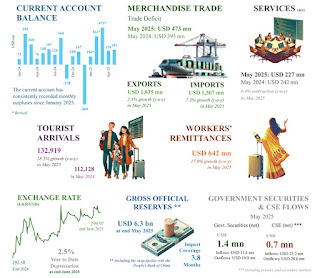
Meanwhile Sri Lanka has to settle this year 2025, a total of USD 2,454 million in routine debts including USD 1,085 million as interest, according to Deputy Minister of Economic Development, Anil Jayantha. That, excluding the annual foreign trade deficit the GoSL has to settle every year.
In year ending December 2024, the total foreign trade deficit was USD 6,100 million with an import bill of USD 18,841 million, an increase of 12.1 percent over the previous year, despite fuel imports decreasing. This year 2025, the trade deficit in month of May was USD 473 million, according to the CBSL figures published. This was an increase of 16.9 percent over previous year trade deficit in month of May.
We are in the midst of a two year Middle East armed conflict, that may drag on, even if it does not lead to a cease fire between Israel, Iran and the Hamas armed organisation in Palestine. Uncertainties looming in Middle East may not provide the dollar remittances from migrant labour the government estimated for this whole year and received during the past 05 months. Thus, GoSL may have to face a serious increase in the external trade deficit, if a miracle does not make a change. Assumed the increase would be around 10 percent over the previous year 2024, the external trade deficit may reach or even go beyond USD 6,710 million. To this, has to be added the annual routine debt of USD 2,454 million disclosed by Deputy Minister Jayantha in parliament, to have the total commitment of the GoSL for year 2025. That then would be USD 9,164 million in 2025.
As much as the NPP government, the SJB in Opposition is inefficient and intellectually timid too in responding to governance issues. Thus there is no serious, intellectual debate in how the government could earn the extra USD 9,164 million needed to bridge the trade deficit this 2025. The IMF has no proposal for increased exports to fetch extra dollars. They are only focussed on axing State expenses and increasing “Rupee income” with increased taxing. The IMF thus approved import of luxury vehicles as a source of Rupee income from taxes, wholly ignoring the fact, GoSL would have to burn a heavy load of hard earned dollars including remittances from migrant labour. From January this year till beginning of month of May, Sri Lanka had spent USD 200 million for vehicle imports, according to CBSL Governor Dr. Nandalal Weerasinghe. He told media on 22 May, the total value of Letters of Credit opened by then for vehicle imports was USD 450 million. And the NPP government seems happy with a tax collection of Rs.136 billion by end of April.
Now, what is important? Collecting 136 billion rupees, form spending USD 200 million for vehicles, that would need extra dollars for extra consumption of fuel, with greater traffic congestions on urban roads? Fact remains, the IMF has no programme, no proposal to increase the export and service income despite all tax concessions, privileges and State patronage for FDIs and for tourism development given by the State at the expense of the tax payer. The annual gap between import trade cost and the export trade income remains around USD 7,000 to 8,000 million with another USD 2,000 million required for debt servicing.
This should be stressed without ambiguity. The required extra annual income in many millions of dollars cannot be earned with Ministers reducing numbers in their vehicle fleet, from not taking residency in official bungalows, from reducing State expenses in patches, from Ministers stepping into paddy fields carrying a mammoty, or by indicting few officials and politicians of the previous regime.
We need a well designed national development plan that can guarantee annual increase in dollar exports to bridge a trade deficit of about USD 10,000 million. Will the JVP/NPP leadership tell the People what their plan is for such income earning, while going round with their populist propaganda stuff?
– Kusal Perera
FEATURES
Asweddumized fields and sizzling kottu roti: New words from Sri Lanka
Published
2 weeks agoon
June 26, 2025By
editor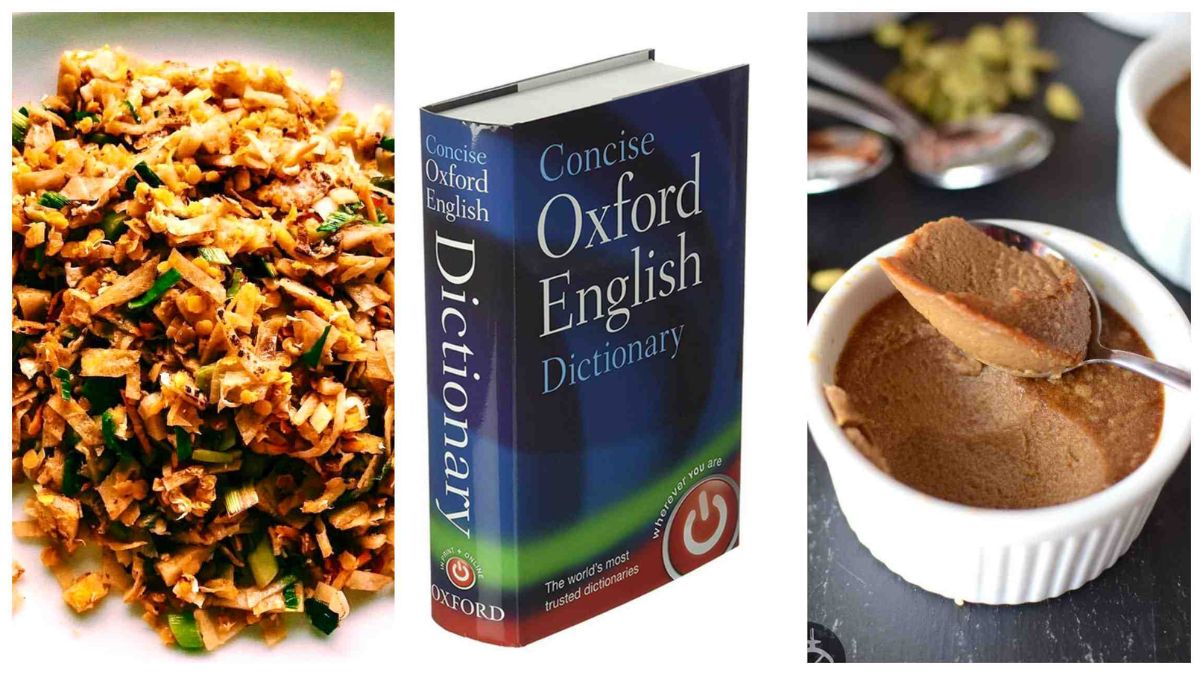
In a letter dated 7 October 1971 and sent from Panadura, Ceylon, OED contributor Pearl Cooray wrote to then Chief Editor Robert Burchfield: ‘I have looked up references for the word asweddumize and have succeeded to a certain extent. The Sinhala word aswedduma means “land recently converted into a paddy field”, and the Anglicized word asweddumize means to prepare a field for sowing paddy’. Cooray was a Sri Lankan academic who visited Burchfield in Oxford earlier in 1971, and upon returning to her country and her position in the Dictionary Department of the University of Ceylon, briefly corresponded with the OED, sending the above quoted letter as well as a selection of Sri Lankan newspapers and magazines for the reading programme for the OED Supplements that were in preparation at the time. Her suggestion for asweddumize would have been too late for the word to be considered for Volume I of the Supplements, so Burchfield wrote the word and definition on a paper slip, the main means by which words were tracked until the 2010s, and filed it alongside an earlier slip from July 1970 with the same suggestion from another Sri Lankan contributor, D. N. Ponnamperuma.
Nothing further is found about asweddumize in the OED’s files until 1986, when botanist D. J. Mabberley, a regular consultant for the Supplement, sent in a quotation slip for the word, which he would have encountered during the time he spent at a university in Sri Lanka. A decade later, another slip records the decision made not to draft an entry for asweddumize due to lack of evidence. ‘Omit (sadly)’was the responsible editor’s regretful note on the slip.
Almost thirty years later, this sad omission has finally been rectified, with the addition of asweddumize to the OED as part of this update. Current OED Sri Lankan English consultant Rochana Jayasinghe’s research on Pearl Cooray and her contributions to the Supplement helped put asweddumize back on the OED’s radar, and now that the dictionary’s editors have wider access to historical and contemporary Sri Lankan sources than their counterparts in the 1970s and 80s, it was possible to find sufficient evidence for the word, including a first quotation from as far back as 1857.
Joining asweddumize among this batch of new words are other borrowings from Sinhala, the Indo-Aryan language primarily spoken by the Sinhalese, the largest ethnic group in Sri Lanka. Mallung (first attested 1893) is lightly cooked, shredded (often leafy green) vegetables mixed with fresh grated coconut, chilli, and other spices, served as a side dish, salad, or condiment as part of a typical Sri Lankan meal, while kiribath (1886) is a Sri Lankan dish made with rice cooked in coconut milk and formed into a block, typically sliced into diamond-shaped pieces and served with various types of onion relish or sweetened with jaggery. Kiribath is traditionally eaten at special occasions such as Avurudu (1881), the first day of the Sinhala and Hindu New Year, occurring on the spring equinox (usually falling around 14 April), marked by a period of celebration typically lasting for seven to ten days.
Other Sri Lankan English words in this update originate both in Sinhala and another widely spoken language on the island, Tamil. Kottu roti (1991) is a Sri Lankan dish consisting of pieces of roti, meat, and vegetables, mixed with spices and curry sauce, and chopped by cleavers as they are cooked on a griddle. It is typically associated with the distinctive sound of the cleavers hitting the griddle as it is prepared by roadside vendors, and its name combines the Tamil word kottu ‘chopped’ with the Sinhala word roṭi ‘bread’. Partly a borrowing from Sinhala and partly a borrowing from Tamil, watalappam (1956) is a custard made from coconut milk (or sometimes condensed milk), cashew nuts, eggs, and spices such as cardamom and cloves, sweetened with jaggery and traditionally eaten by Sri Lankan Muslims during celebrations marking the end of Ramadan.
Sri Lankan music is represented by the words baila (1973) and papare (2006). Baila, a loan word from Portuguese, refers to an uptempo style of popular music originating in Sri Lanka which combines influences from both Africa and Europe, typically played in 6-8 time, with a syncopated rhythm, as well as to the style of dance performed to this music. Often associated with weddings and other celebrations, types of baila music are also popular in Goa and in the city of Mangaluru, on India’s west coast. Papare, on the other hand, is a genre of Sri Lankan music usually played at cricket and other sports matches, characterized by lively rhythms and typically featuring instrumentation of trumpet, saxophone, trombone, and snare and bass drums.
Apart from adding new Sri Lankan English words, OED editors have also revised a number of existing Sri Lankan English entries in the dictionary. Both these new and revised entries have been given transcriptions and audio pronunciations based on a new pronunciation model for Sri Lankan English, which is explained in more detail in this article. These enhancements to the OED’s coverage of Sri Lankan English help provide a more complete picture of how the language is used islandwide.
Full list of World English additions and revisions in the OED June 2025 update
(oed.com)
FEATURES
Dog-sized dinosaur that ran around feet of giants discovered
Published
2 weeks agoon
June 25, 2025By
editor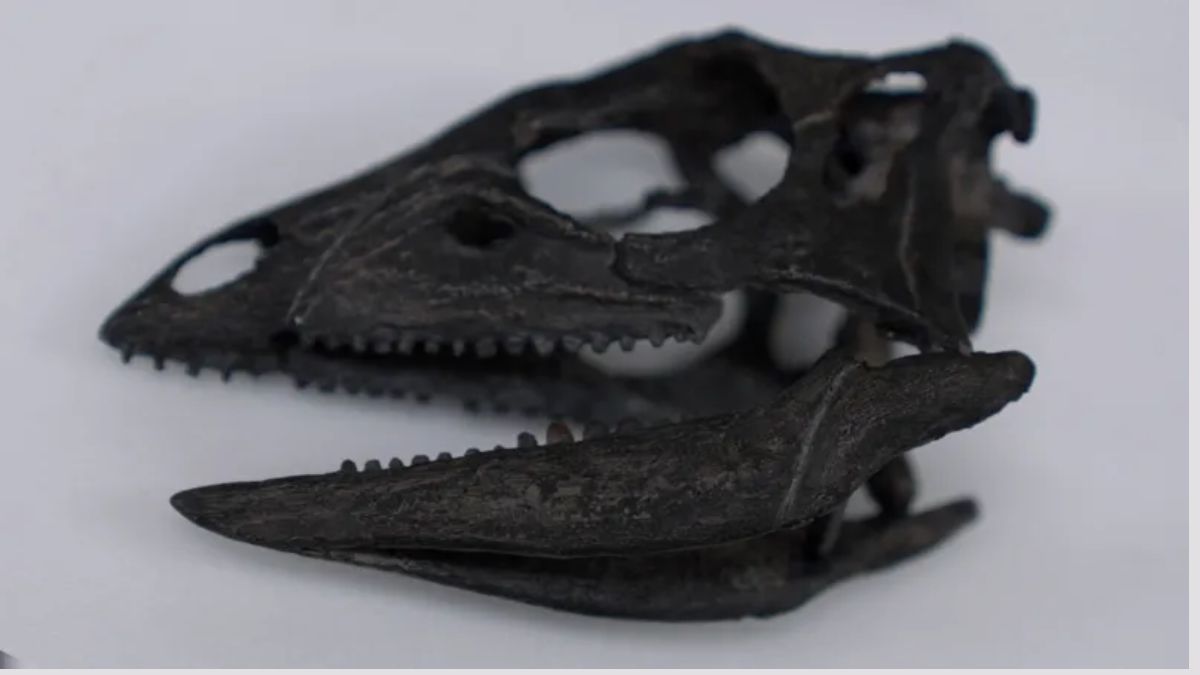
The full name of the new species is Enigmacursor mollyborthwickae dinosaur
A labrador-sized dinosaur was wrongly categorised when it was found and is actually a new species, scientists have discovered.
Its new name is Enigmacursor – meaning puzzling runner – and it lived about 150 million years ago, running around the feet of famous giants like the Stegosaurus.
It was originally classified as a Nanosaurus but scientists now conclude it is a different animal.
On Thursday it will become the first new dinosaur to go on display at the Natural History Museum (NHM) in London since 2014.
BBC News went behind the scenes to see the dinosaur before it will be revealed to the public.
The discovery promises to shed light on the evolutionary history that saw early small dinosaurs become very large and “bizarre” animals, according to Professor Paul Barrett, a palaeontologist at the museum.
When we visit, the designer of a special glass display case for the Enigmacursor is making last-minute checks.
The dinosaur’s new home is a balcony in the museum’s impressive Earth Hall. Below it is Steph the Stegosaurus who also lived in the Morrison Formation in the Western United States.
Enigmacursor is tiny by comparison. At 64 cm tall and 180 cm long it is about the height of a labrador, but with much bigger feet and a tail that was “probably longer than the rest of the dinosaur,” says Professor Susanna Maidment.

The Enigmacursor was a small dinosaur that lived alongside some of the biggest known
“It also had a relatively small head, so it was probably not the brightest,” she adds, adding that it was probably a teenager when it died.
With the fossilised remains of its bones in their hands, conservators Lu Allington-Jones and Kieran Miles expertly assemble the skeleton on to a metal frame.
“I don’t want to damage it at this stage before its revealed to everybody,” says Ms Allington-Jones, head of conservation.

Conservators Lu Allington-Jones and Kieran Miles assembled the dinosaur onto a frame for display
“Here you can see the solid dense hips showing you it was a fast-running dinosaur. But the front arms are much smaller and off the ground – perhaps it used them to shovel plants in its mouth with hands,” says Mr Miles.
It was clues in the bones that led scientists at NHM to conclude the creature was a new species.
“When we’re trying to identify if something is a new species, we’re looking for small differences with all of the other closely-related dinosaurs. The leg bones are really important in this one,” says Prof Maidment, holding the right hind limb of the Enigmacursor.
When the dinosaur was donated to the museum it was named Nanosaurus, like many other small dinosaurs named since the 1870s.
But the scientists suspected that categorisation was false.
To find out more, they travelled to the United States with scans of the skeleton and detailed photographs to see the original Nanosaurus that is considered the archtype specimen.
“But it didn’t have any bones. It’s just a rock with some impressions of bone in it. It could be any number of dinosaurs,” Professor Maidment said.

Susanna Maidment travelled to the US to look at the original Nanosaurus dinosaur
In contrast, the NHM’s specimen was a sophisticated and near-to-complete skeleton with unique features including its leg bones.
Untangling this mystery around the names and categorisation is essential, the palaeontologists say.
“It’s absolutely foundational to our work to understand how many species we actually have. If we’ve got that wrong, everything else falls apart,” says Prof Maidment.
The scientists have now formally erased the whole category of Nanosaurus.
They believe that other small dinosaur specimens from this period are probably also distinct species.
The discovery should help the scientists understand the diversity of dinosaurs in the Late Jurassic period.
Smaller dinosaurs are “very close to the origins of the large groups of dinosaurs that become much more prominent later on,” says Prof Barrett.
“Specimens like this help fill in some of those gaps in our knowledge, showing us how those changes occur gradually over time,” he adds.
Looking at these early creatures helps them identify “the pressures that finally led to the evolution of their more bizarre, gigantic descendants,” says Prof Barrett.

The fossilised remains are the most complete of any in the world for early small dinosaurs
The scientists are excited to have such a rare complete skeleton of a small dinosaur.
Traditionally, big dinosaur bones have been the biggest prize, so there has been less interest in digging out smaller fossils.
“When you’re looking for those very big dinosaurs, sometimes it’s easy to overlook the smaller ones living alongside them. But now I hope people will keep their eyes close to the ground looking for these little ones,” says Prof Barrett.
The findings about Enigmacursor mollyborthwickae are published in the journal Royal Society Open Science.
– Georgina Rannard
Science correspondent
(BBC News)

President meets Gates Foundation delegation

TUs oppose appointment of Premarathne as new Excise chief








